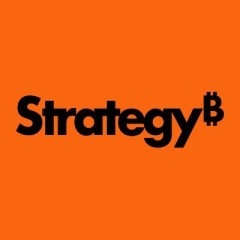What is our primary use case?
We actually have two industries we service. We service the transportation industry, as well as the healthcare industry. We typically do patient transports for emergency and non-emergencies. We do them by helicopter, that is our airmen division. We have a number of other businesses that we serve, like alarm system companies and the like, but primarily we use our analytics to look at patient transport counts and volumes, by the day, by the week, and by the month.
We also look at specific parishes (we call them battalions) to see how we can expand businesses out in Texas and Louisiana. We have a large market in Louisiana, Mississippi, and the surrounding areas. Therefore, we do a lot of proof of concept reporting as well, and we use the Enterprise Manager for other things as well.
How has it helped my organization?
We literally have some issues with the high-end users using the data and trusting the data. A lot of it gets dumped into certain areas, therefore we made a central repository for it. Then MicroStrategy reports off of that central repository, so we can validate the data relatively easily. Thus we can say, "Look, this is what we are seeing for Louisiana. This is what you guys have from the communication center. It matches one for one."
It builds a lot of rapport between the top end users and us. When I say that, I am referring to the "C" levels, the executive committee people, and other high end users.
MicroStrategy self-service is on the horizon. We have a couple of groups of people that we are trying to test out self-service with right now, specifically, our quality improvement group and our business development group. The problem for us is we do not want self-service to become this thing where there are reports everywhere and we can't manage it, so we are trying to develop some auditing processes to make sure that we are not throwing ourselves to the wolves. However, the plan is definitely to move towards self-service. We want the users to be able to be intelligent enough to make what they need and see what they want.
Dossiers are going to change the name of the game for us. We want to be able to have the executive committee go into a meeting and tell a story. We want them to tell us a story, not us. I do not want to go in as an IT guy and say, "Hey, this is the story." We really want the executive committee to be able to understand that this is a way of telling a story with data, because data without information is useless. If we can get them to that point, which I am confident that we can, then MicroStrategy will have done a great service to us, and rendered time back to us to go spend on other places.
That is really what we are shooting for. Dossier is a big thing for us. Geospatial analytics is huge for us. Anything that we can do with self-service is big for us. Those are the top three goals for 2018, in general.
What is most valuable?
The one thing that we have wanted to get more into, and we have touched a little bit of, is the Esri out-of-the-box: Esri mapping geospatial analytics. In fact, our presentation includes a piece of how we were able to leverage placing that airmen station in Texas for the first time, based upon transports from a geospatial map.
There also are a few others that we have taken advantage of recently. I think the chat feature inside of 10.10 is huge, especially if you are doing collaborative dashboarding.
We mostly do MicroStrategy, so we prefer the single platform for analytics capabilities. There are some use cases to do multi-platform. We just have not been at a point where we can overutilize it yet, or even utilize it at all. The cases for us that come up, they are so far and few between that we really have to take advantage of it and spend a lot of time on it, so that we can sell it. I imagine in the future that we probably will have multi-platform stuff.
We have some mobilize licenses right now. We have a small amount: 25. We built a couple of mobile apps. We have not jumped on the mobile bandwagon just yet. We have some use cases for it. We have not really identified where we can get the most bang for our buck. I imagine 2018 might have some of that as well, as a minor goal, possibly 2019. This being a huge issue for us, our getting into it, because a lot of our trucks, our medics, our people who drive on our trucks, and do the transfers, they all have iPads. If there is something that we can give them which says, "Hey, avoid traffic here," or do something to make a decision, that could be huge. Use cases are always a challenge.
What needs improvement?
If I had no issues with the tool ever or if I did not have any problems when I upgraded, then I would probably give it a higher rating (a perfect 10). If the Enterprise Manager was a little bit less quirky when you build out-of-the-box customization reports for it, I probably would give it a 10, but just those small things bring it down a little bit for me. However, it is a good tool.
Let us say that you have someone who comes in who does not have a strong programming background and they want to use Enterprise Manager to do some things. It is sort of the way the warehouse is set up, they might need the statistics warehouse when they first get in and they could be very turned off by the UI. Just the way some of the reports tailor themselves out-of-the-box, it does not really lend itself to be helpful.
Then you have to customize, and when you start customizing, you bring in these attributes that sometimes do not even fit together. You may want to see something and how it gets done, then you are kind of stuck. That can make you leave the tool alone completely. Luckily for us, we have found ways to work with our consultant, and just really try to tackle it as much as possible. We have found ways to get around it.
What do I think about the stability of the solution?
I actually enjoy MicroStrategy a lot. When it came to Arcadia Data, it was sort of dead in the water, a Lazarus project. It kind of came up from the dead. Mostly because people did not understand the tool. My grandfather always had a saying that you got to know the tool before you can use the tool. That is what we did. My colleague and I took MicroStrategy, and said, "What does it do, what is it?"
We just started building simple reports from scratch and went from there. Now, that we understand it, people are like, "Oh, okay. I get it. It's not that bad, it's actually great."
I am a fan of MicroStrategy and other tools, but I think MicroStrategy is a great tool. It does really well for what it serves.
How is customer service and technical support?
We like the tech support. They have done a number of things to help us out. They have sent us to rapid response before, when we really needed them. They have gotten back to us as early as a day, maybe half day, and even within an hour.
We have had positive experiences with them. There are areas that I can specify that they can improve in, but I think that is with any help desk or technical support.
How was the initial setup?
I was not involved in the initial setup.
I came in three years after its inception, and it was in the Lazarus stage. They were not going to spend any more money, get rid of the tool, phase out of it, and since then we have brought the tool back:
- We have bought 100 new licenses.
- We have ramped up user adoption.
- We have run on trips to do symposiums.
- We have found that it is starting to fit together.
What other advice do I have?
Do not walk away without taking the time to get to know the product or the people intimately. If you are trying to do analytics, it is a fantastic product, a top-tier product. We have dealt with a number of other products. I worked with folks who have dealt with Tableau and others. Especially with what they are doing with Dossier and all the things that are coming out, MicroStrategy has really started to lead the way with analytics in the future. I would court MicroStrategy and spend some time with them. Get to see what the tool does and what can it do for you. Do some proofs of concept.
Most important criteria when selecting a vendor: We try to court them as much as possible. We want them to come and see how we do things in Louisiana. We are very much a down to earth folk. I will say that. People mention the Cajuns. We are kind of rambunctious, too. We got to get to know the person that is selling the product before we even get to know the product, then we look at the product, and say, "What does it do? What can it do for us?"
We do a lot of proofs of concept. We are doing telemetry in our trucks, ambulances, and vans, possibly. What we found is the MicroStrategy reps travel a great distance to see us, and we appreciate that. We need to see them face-to-face. If there is a quote, it is amazing what you find face-to-face. That is huge for us. We have to have that.
MicroStrategy is just readily available for us.
Disclosure: PeerSpot contacted the reviewer to collect the review and to validate authenticity. The reviewer was referred by the vendor, but the review is not subject to editing or approval by the vendor.














